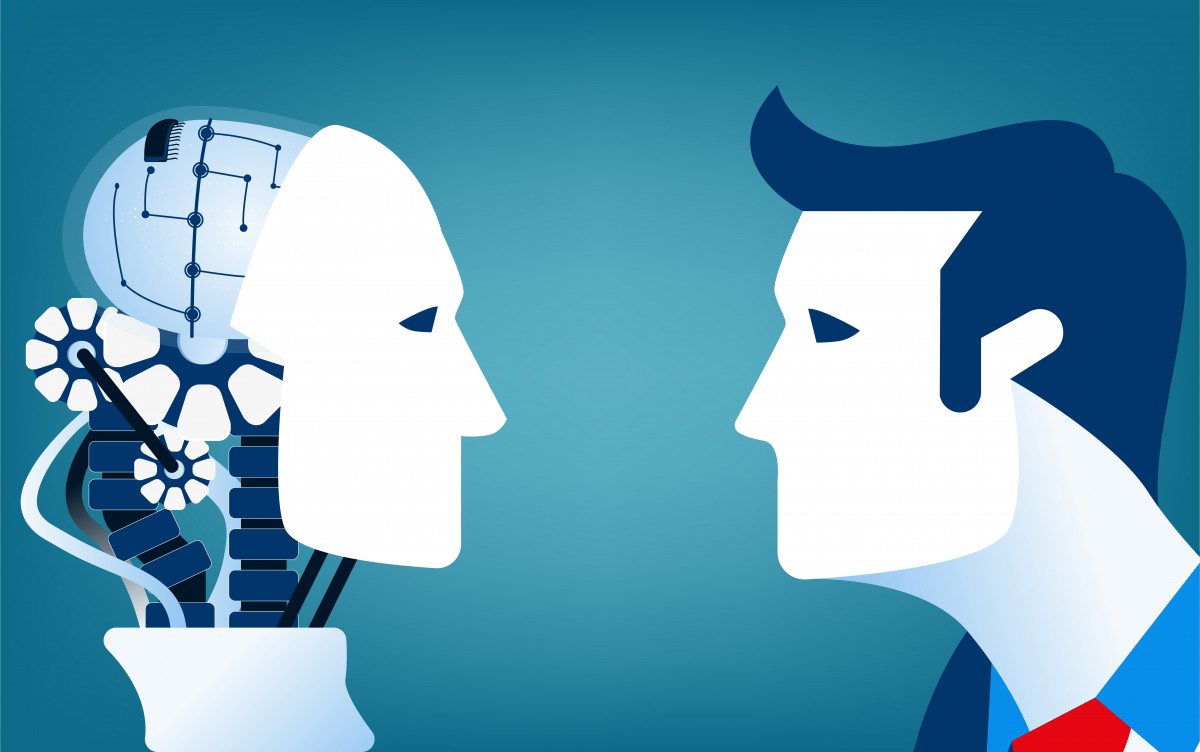Many people view Artificial Intelligence (or ‘Machine Learning’) as the big, bad wolf coming to get their jobs. We’ve all seen media reports that portray this ‘rise of the machines’ as a kind of apocalyptic threat to job security. Of course, it makes great headlines – consultants McKinsey recently claimed that robotic automation could take ‘up to 800 million jobs by 2030’ – that’s around one-fifth of the global workforce; “Will a robot take your job?” was the subject of a recent BBC News item. There are two areas of hope for humanity.
Firstly, we need to recognise the opportunity for the growth of new jobs made possible by technology. It’s likely that a child born in 2018 will do a job that doesn’t exist today. How would you explain what a Digital Media Manager is to someone in 1995? We can see jobs we understand disappearing, but we can’t conceive of jobs we don’t understand appearing in their place. Machines have been displacing humans since the industrial revolution and at every point, new forms of work have arisen. The challenge will be to grow an adaptable workforce that can quickly learn to work alongside new technologies.
Secondly, it’s important that we recognise the limits of robotics. Machines do not experience the world in the way humans do and lack an emotional and psychological context, so struggle with activities like creativity and certain forms of problem solving. While a computer might be able to provide a summary of legal precedent in a disciplinary case, it’s hard to see how it could support an employee with personal issues that affect their performance, or spot untapped potential in someone and create an appropriate development plan.
We need positive thinking about the advantages of new technologies. In the case of HR (a business function that has historically been slow to adopt new technology), there could be huge benefits from introducing greater machine learning. Consider these three areas:
1) Data administration
Recruitment, on-boarding or updating personal details, data processing is an important task within HR departments. A recent NGA survey found a third of HR departments spend more than a day a month simply creating reports and 33% cite data entry as the most time-consuming activity when creating reports.
Rather than spending long hours manually inputting information, machines could take on these tasks. Auto-filling data fields on documents or forms could free up huge amounts of time, reduce human error and limit duplication of effort.
2) Actionable insights
Machine learning can also help spot patterns of behaviour that might otherwise be missed. The use of predictive analytics allows machines to spot correlating patterns in data, offering insights into what might be causing people to leave. It’s then over to the humans to develop corrective initiatives to reduce attrition based on their knowledge of what motivates and retains people. Instead of spending time collecting and manually merging information, we can spend more time acting on interpretation and action.
Not only will this reduce recruitment costs, it will contribute to a more engaged, happier, productive workforce.
3) Empowering employees through self-service
HR teams still spend too much time handling employee queries – simple questions such as, “what’s my tax code?’ can distract from other critical tasks. When linked to an HR system, simple technologies such as Alexa, Google or Siri (now so common that we no longer think of them as robots) can answer questions such as “how much holiday do I have left?”. By eliminating routine queries, more time is available for meaningful conversations about learning and development and career progression.
None of the above are science fiction – the technologies already exist and are being used in early adopter organisations.
Connecting robotics to HR is vital to develop the function. It will allow HR to focus on what really matters – acquiring and developing talented people to become more productive. The future will be about the very human activity of understanding employees at an individual level, caring for their wellbeing and developing a performance culture so everyone can reach peak performance - enabled by robotics in many cases.
We will need to harness the power of data and analytics to help us achieve this and we won’t get there by resisting the roll out of AI and automation– it will only happen by having humans working in harmony with machines.




